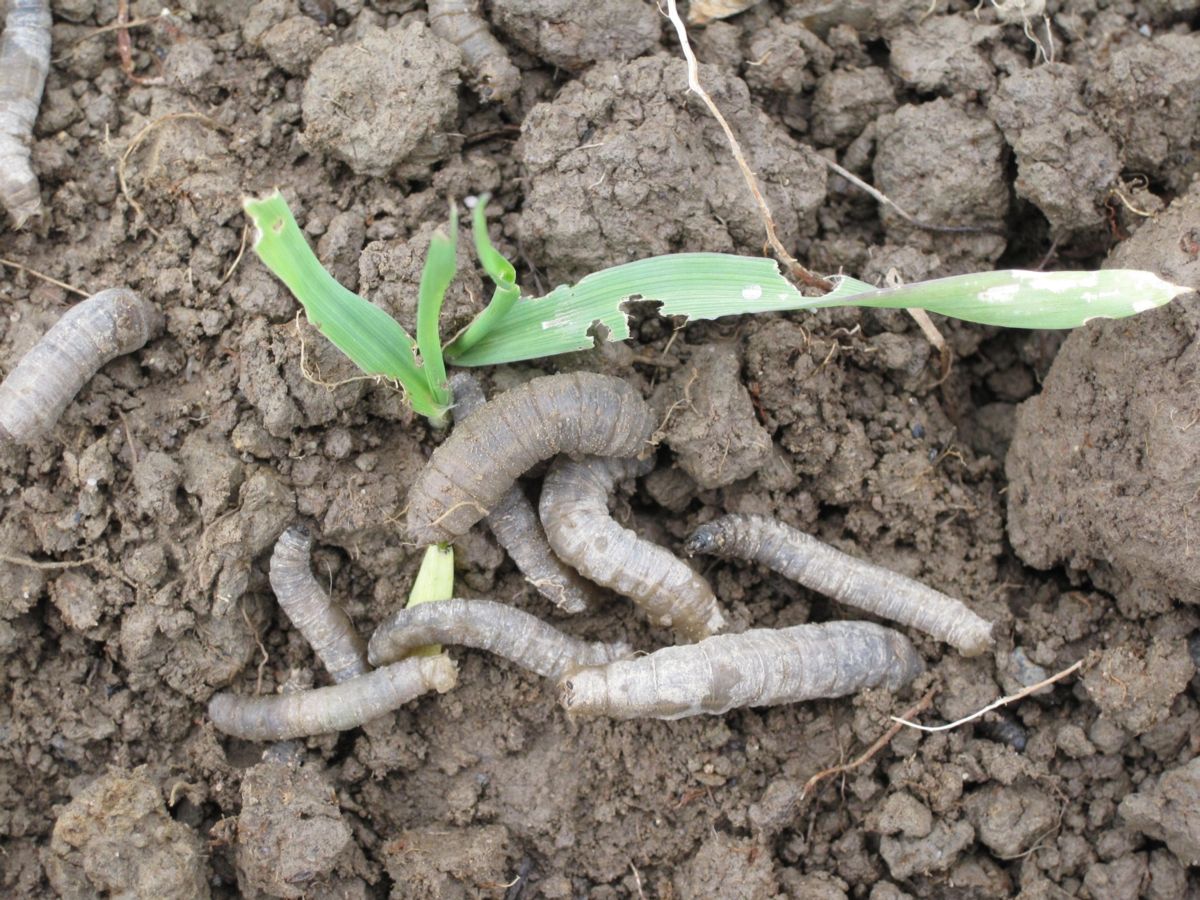
The government has rejected an emergency authorisation application for the use of chlorpyrifos, applied by NFU Scotland.
Farmers and crofters have now 'been left with no economic means' of controlling 'damaging' leatherjackets on grassland, the union said.
Widely-used plant protection products (PPP) like Dursban WG and Equity, which contained the active substance chlorpyrifos, were used for decades to control a wide range of pests in grassland, arable crops, vegetables and soft fruit.
The products help control pests such as aphids, caterpillars, wheat bulb fly and leatherjackets.
Leatherjacket damage to crops
In February, the Chemicals Regulations Directorate (CRD) announced that authorisations for products containing chlorpyrifos would be revoked within a matter of weeks.

At this time CRD said that it did not expect those using chlorpyrifos, or commodities treated with it, to pose a risk to human health.
The announcement meant that from 1 April 2016 it was illegal to sell, distribute or use products containing chlorpyrifos except under very limited circumstances.
Almost immediately NFU Scotland received reports from members across the country that their crops were sustaining leatherjacket damage.
NFU Scotland worked with NFU England and Wales, Ulster Farmers’ Union and Dow Agrochemicals Ltd, to submit an application to CRD for a 120-day emergency authorisation for use of Equity, a PPP containing chlorpyrifos, to control leatherjackets on new sown leys and established grassland this autumn.
However, the CRD has now notified NFU Scotland that it has rejected its application.
'Bitterly disappointed'
Andrew McCornick, NFU Scotland’s Vice President, commented: "NFU Scotland is bitterly disappointed that CRD has rejected its application.
"The toolkit for grassland farmers and crofters, as well as others affected by pests previously controlled with chlorpyrifos, is empty.
"We had sought limited and controlled access to chlorpyrifos with robust safeguards for human health.
"Unfortunately, CRD, despite recently stating the product posed no risk to human health, has denied farmers and crofters access to it.
"The Union is already aware of impacts from the loss of chlorpyrifos on farms and crofts across Scotland.
"As a matter of urgency we will explore new options and seek support from both the Scottish and UK governments."
